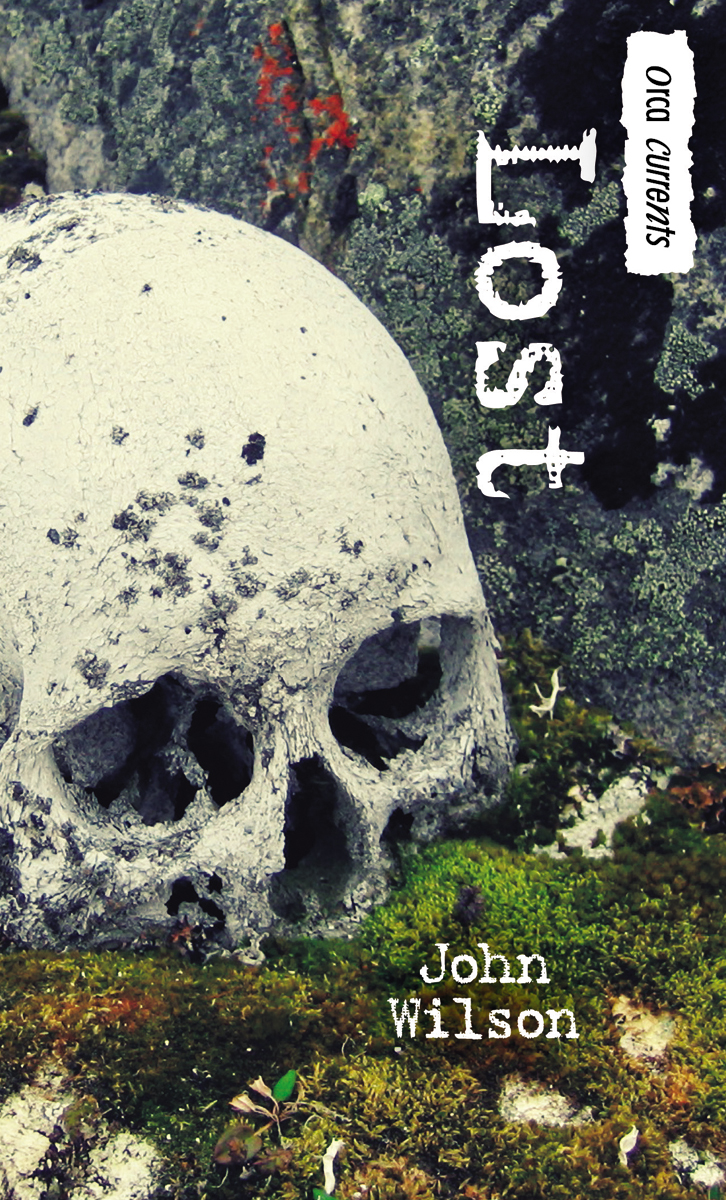#TuesdayTalk with John Wilson. His new book, Lost, is on shelves now.
Tell us about your book.
My latest book is Lost, in the Orca Currents series. For the third time, Sam and Annabel pit their wits against the fabulously wealthy and unscrupulous collector, Humphrey Battleford. When they win a cruise to the Canadian Arctic, Sam and Annabel find themselves close to the shipwreck that might hold the answer to the 170 year old mystery of what happened to the Franklin Expedition, but the situation is not as it seems. If the answer does lie there, what would it be worth and to what lengths would someone be prepared to go to add it to their collection?
What was the catalyst for your story?
I wanted to continue the stories with Sam and Annabel and the discovery of Franklin’s ship, the HMS Erebus in 2014, got me thinking of the Arctic as a setting for their next adventure.
What are the challenges of writing for or within a series?
The challenge with a series like the Sam and Annabel stories is that you lose the flexibility of creating new characters to fit with whatever plot you think of. The main characters have to be consistent throughout a series of books and so the plot must be structured to fit with that. Readers of a series have an expectation of how their favorite characters will act and react. The author can’t change that.
What was your favourite book as a child?
The Tale of Peter Rabbit by Beatrix Potter. In some ways, it still is.
In your opinion, what makes a compelling story?
Obviously strong characters that the reader can relate too, but the plot must be strong and complex enough that it challenges the characters. This can be a physical, emotional or moral challenge, but it is especially important in a series where the reader likely comes to the story with established expectation of the characters.
Does your book have a niche or specialty market?
Lost is high interest low vocabulary, and is aimed at reluctant readers. It speaks to that readership if they read the last page and think, that was fun. It succeeds if they go on to read another book.
Do you gravitate toward a certain genre or type of writing?
There is a historical component to all my writing. In the Sam and Annabel books, the artifact that the main characters must stop Humphrey Battleford stealing is something from the past—in Stolen it was a magnificent porcelain peacock from a 19th century shipwreck; in Bones it was an unusual dinosaur skeleton; and in Lost it is a Franklin relic. Why I am fascinated by the past is a question I have examined for many years without coming up with a concrete answer. I just think the past is a really cool place.
What types of conversations do you hope will come out of your book?
Lost is a straightforward adventure story, but could be a starting point for conversations about the Arctic and the European exploration of it, or the morality of collecting historical artifacts, which could lead into a discussion of removing cultural artifacts from one culture to put in a private collection or museum elsewhere.
Tell us a little known or interesting fact about yourself.
My father was born in Lucknow, India in 1905. I grew up with stories of Imperial India in the 1920s and 30s — maybe that’s why I love history.
 Born in Edinburgh, Scotland, John Wilson grew up on the Isle of Skye and outside Glasgow without the slightest idea that he would ever write books. After a degree in Geology from St. Andrews University, he worked in Zimbabwe and Alberta before taking up writing full-time and moving out to Lantzville on Vancouver Island in 1991. John is addicted to history and firmly believes that the past must have been just as exciting, confusing and complex to those who lived through it as our world is to us. Most of his thirty-two novels and nine non-fiction books for kids, teens and adults deals with the past. His tales involve intelligent dinosaurs, angry socialist coal miners, confused boys caught up in the First and Second World Wars, and the terrors faced by lost Arctic explorers. John spends significant portions of his year traveling across the country telling stories from his books and their historical background and getting young readers (particularly but not exclusively boys) energized and wanting to read and find out more about the past. For more information, visit johnwilsonauthor.com.
Born in Edinburgh, Scotland, John Wilson grew up on the Isle of Skye and outside Glasgow without the slightest idea that he would ever write books. After a degree in Geology from St. Andrews University, he worked in Zimbabwe and Alberta before taking up writing full-time and moving out to Lantzville on Vancouver Island in 1991. John is addicted to history and firmly believes that the past must have been just as exciting, confusing and complex to those who lived through it as our world is to us. Most of his thirty-two novels and nine non-fiction books for kids, teens and adults deals with the past. His tales involve intelligent dinosaurs, angry socialist coal miners, confused boys caught up in the First and Second World Wars, and the terrors faced by lost Arctic explorers. John spends significant portions of his year traveling across the country telling stories from his books and their historical background and getting young readers (particularly but not exclusively boys) energized and wanting to read and find out more about the past. For more information, visit johnwilsonauthor.com.

